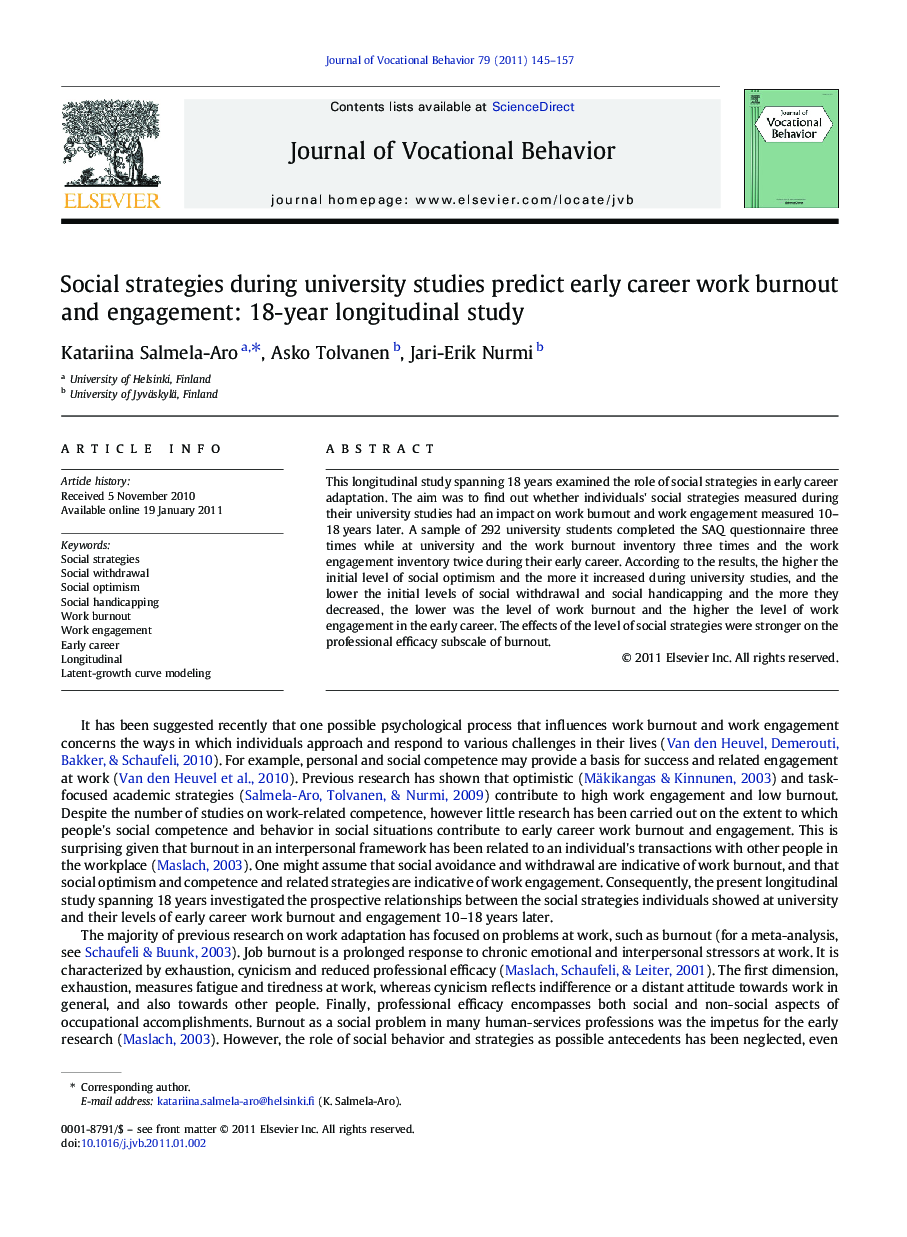| Article ID | Journal | Published Year | Pages | File Type |
|---|---|---|---|---|
| 887272 | Journal of Vocational Behavior | 2011 | 13 Pages |
This longitudinal study spanning 18 years examined the role of social strategies in early career adaptation. The aim was to find out whether individuals' social strategies measured during their university studies had an impact on work burnout and work engagement measured 10–18 years later. A sample of 292 university students completed the SAQ questionnaire three times while at university and the work burnout inventory three times and the work engagement inventory twice during their early career. According to the results, the higher the initial level of social optimism and the more it increased during university studies, and the lower the initial levels of social withdrawal and social handicapping and the more they decreased, the lower was the level of work burnout and the higher the level of work engagement in the early career. The effects of the level of social strategies were stronger on the professional efficacy subscale of burnout.
